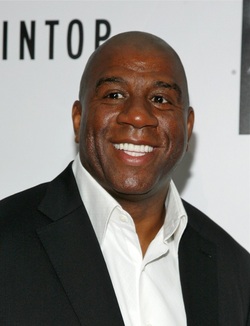 I’m not going to lie, one of the reasons I love Grant Cardone is because a lot of stuff he says validates my own thinking. When I’m listening to Grant’s audiobooks I’m constantly thinking, ‘I do that, I didn’t even realize it’s a thing’. One thing Grant emphasizes in If You’re Not First You’re Last is that a lot of people fail because they don’t plan. I couldn’t agree more because being very well organized is the one reason I can attribute to me being a lot more successful than people that I know for a fact are inherently smarter than I am. Don’t get me wrong, I am one smart cookie but I’m not egotistical enough to think I am the smartest girl in the world. Anyhow, many adults I know completely have no sleep structure. When it comes to sleep most people seem to have a consistent waking up time just because they have a job to get to but they go to bed at anytime. When it comes to wealth planning, sleep is what you should schedule into your plan first. I have always done this. Why Do I Rate Sleep So Highly? Personally,
A few people who have very bad sleeping patterns may justify their pattern by saying sleep makes no difference to them. If they are living a life of abundance, I will believe them. If not, they’re lying to themselves. Get rid of the sleep deprivation and you’ll start enjoying more wins in your life. How do I manage my day? I’m only telling you this to help you structure your day. What works for me may not work for you but at least you’ll gain some insight into one person’s schedule for a productive day. MY STUDENT TIMETABLE (UNIVERSITY) It depends on what’s happening that day, however, on a normal day: 10:30 p.m. – 6.30 a.m.: I sleep When I am studying for an exam I keep a very strict schedule of:
There are 8 hours of work in this schedule. I actually work in 5-minute slots during each 2 hour period. I create a plan that has an outcome after every 5-minute period. This is extremely intense but it ensures that I don’t daydream. I’m a daydreamer so I need to account for my time. By 3:30 p.m. I am usually shattered because I work so intensely, so in my last two-hour session I’ll usually do something less intense, like solving maths problems. What do I do during breaks?
I only worked this intensely from March to June when we had exams in Cambridge; three straight months of hard graft. I wouldn’t skip a week – I was on it Monday to Sunday. On Sundays I did 6 hours of work because I used to go chapel too. The schedule was manageable because I had all my evenings off. This meant I could go to the cinema or to dinner or go hang out with friends. I did all this stuff often. Some people crammed all the work into the last few weeks before exams so they didn’t factor in sleep and relaxation. They were a little burnt out by the time exams came.  MY ENTREPRENEUR TIMETABLE (2012+) It depends on what’s happening that day, however, on a normal day: 10:30 p.m. – 6.30 a.m.: I sleep My ‘Trep timetable is very much informed by my life as a student and as an employee. In the first 18 months I worked like crazy. I enjoyed it and I was setting up and learning lots of new things so I didn’t really feel any pain. Now, keep in mind that in the early years of investment banking I rarely went home before 10 p.m. and I frequently went home in the teeny weeny hours of the morning so it shifted my norm for what hard work is. The First Two Years of Business
I gymed twice a week in the morning so I’d start work at 8:30 or 9:00 a.m. on such days. I walked for about an hour daily listening to audiobooks this is why I have so many book reviews. If I wanted to rest my brain I listened to music instead. I consistently worked 10 to 12 hours per day. Before bed I always make sure to update my to-do list for the next day. Usually I have to adjust what I need to get done as a week progresses because I am a little overambitious in what I want to achieve; I really pack it in to my schedule. Some goals are placed into the following week and new goals are added to the current one. As the business started to make more money I started hiring many more freelancers allowing me to enjoy more rest. However, even when I was pregnant I worked at least 8 solid hours per day creating products, setting up automated processes and from about 34 weeks of pregnancy, training my freelancers to do more of my work. By the time my baby came in Dec-2014 I could keep the business running well with only about 4 to 8 hours of work per WEEK from me. The harder you work setting things up, the more you can rest. GRANT CARDONE’S TIMETABLE 9:00 p.m. – 4:00 a.m.: sleep This was one of the most amazing things to me about his schedule. I would previously have called 04:00 a.m. an ungodly hour but Grant changed my frame of thinking a little. Fortunately, I found Grant when I was suffering from pregnancy insomnia and I frequently naturally woke up at 4:00 a.m. – so what did I do? Well, if Grant can start his day then, so can I. I got up and handled my business and caught up by having a two-hour sleep in the afternoon instead. It worked very well for me. After Grant gets up he:
FUN Within our structure, we have plenty of fun too. There is plenty of time to goof around, laze about, watch the X-Factor, Millionaire Matchmaker, Criminal Minds, Law & Order, eat out and have a laugh. However, the more work you get done in the early years the more fun you can have later. Importantly, time needs to be scheduled in and managed. If you follow what most people do, i.e. have fun without a deadline, you are setting yourself up for financial poverty. CONCLUSION Plan your life around some solid rest. You have to sleep to maintain your productivity. No one can work well without rest. If you need help with creating a schedule I have provided three above: my student timetable, my entrepreneur timetable and Grant Cardone’s timetable. You can use these to create your own. If you choose to join The Money Spot™ Program you will get a weekly planner. In the meantime, you can download my simple Objectives Template.  Want to Build a 6-Figure Beauty Business from the comfort of your sofa? Then my course is designed for YOU! "Beauty" includes a WIDE range of products from the not so obvious non-perishable foods and crafts to the more obvious hair, makeup, fashion, health & fitness.
0 Comments
 I watched one of my entrepreneur friends go from making great money for a two year period to having to get a job after a very short period of declining revenues: I saw it coming but I failed to stop it. I strongly believed that they person needed to build a brand and to market themselves with that brand using the usual blogs and social media relationship building. Out of the three elements of my money spot program they only had one element on lock-down: distribution. My friend was selling very successfully via an online portal and to be honest as their revenues were better than mine I felt they wouldn’t listen to my advice. Why should they? Why did I think they were working on the wrong things? They got it right by starting with and focusing on one product. However, they spent all day, every day ordering and managing stock plus packing and shipping product to customers. This, in my book, is one of the worst things an entrepreneur can do.  These kind of tasks are some of the easiest to do and the most straight-forward to pass on to someone else. I did ask my friend to hire someone to do it but they ultimately said they enjoyed and preferred to do all these operations themselves. Fair enough. If these admin like tasks were only taking one maybe two hours per day, I would have been like fine, it’s not a big deal, however, this was not the case – they consumed most of the working day. Why did the strategy fail? By spending all time on admin, no time was spent on building a strong and attractive brand and no relationship was being built with potential new customers. This meant the person was just selling another commodity rather than a lasting brand identity.  If they had spent some time building a following then in hard times when sales were poor they would appeal to their fans with promotions etc. The only emails to-hand were those of existing customers and unfortunately most of those had already bought all the items they would have wanted from my friend’s store. Unconvinced by the potential for social media, the dream life that had been worked on so hard was neglected. How can you avoid the same trap? I have three simple tips. Don’t be satisfied with selling another commodity:
If you’ve been selling another commodity – sit down and strategize your way out of this sticky situation – selling a commodity will fail you in a recession.  Want to Build a 6-Figure Beauty Business from the comfort of your sofa? Then my course is designed for YOU! "Beauty" includes a WIDE range of products from the not so obvious non-perishable foods and crafts to the more obvious hair, makeup, fashion, health & fitness.  Children as a group are possibly the best salespeople in the world. When a child decides he wants something he will try to get it at any cost and only give up when he realizes there isn’t a chance in hell of getting the wanted item. This is why they are so successful in their pursuits. It has nothing to do with mother nature making them oh-so cute and impossible to say no to. I love watching kids, especially when I’m in a store to see how they go about getting what they want. Here’s what makes them so effective: LACK OF FEAR Children aren’t generally afraid to ask. They hear the word ‘no’ all the time but when they want something else they will ask. They’re willing to risk hearing ‘no’ because there is a chance that you might say ‘yes’. QUICK RECOVERY FROM REJECTION A kid can hear a very firm ‘no’, have a cry over it and yet five minutes later they are asking for something else, possibly even the same thing that was denied only five minutes before. When they come to ask for it again they usually have a new strategy. Lots of adults get overly deflated by rejection; they wallow in it for way too long before sliding on to the next thing.  POSITIVITY If your kid sees something she likes on TV she’ll ask for it even if the economy is going down the toilet. She doesn’t know about the economic situation and quite frankly, doesn’t care. She wants what she wants and she’ll fight for it. I’m always saying this but I’ll say it again. News, ALL news, is designed to keep us scared, negative and constantly in fear. You don’t have to watch a news channel for 5 minutes before the next bit of negative news comes on: someone died, or a plane crashed, or war has broken out in [name country] or there’s a new natural disaster somewhere in the world. It’s depressing and it has a long-term impact on your behaviour. For instance, when the recession started there was no end of bad financial news. It stopped many of us from taking risks such as starting a business. The collective psyche of people tells them to save more and spend less. Spend more and save less has only one outcome: the economy contracts even further, people lose their jobs and you have a never-ending cycle of contraction. For those that don’t immerse themselves in bad news, reject it and instead adapt their behaviour to make profit in a different way, the outcomes are different: in If You’re Not First You’re Last by Grant Cardone he says that when the economy is going down he ups his marketing spend and begins to take even more massive action because people’s default response is now ‘no’. You have to work harder to convince them to buy.  FOCUS ON THE GOAL In that moment when a kid decides she wants something that becomes her sole focus. She will try one strategy after another to get that thing until she gets it. She doesn’t get distracted. STRATEGY REFINEMENT Kids learn early what works. For some parents / aunts / uncles crying and whining work so that’s what they will do. For me, if you cry or whine I feel nothing. I hate criers and whiners. It makes me not want to give them what they want even more. I was raised like that. My dad would send you outside if you started crying and I’m glad he did because I learnt how to justify my wants instead. For kids that learn to argue their case and justify, the world is their oyster – most adults are amused by the stories kids can come up with to ensure they get what they want. I was once out visiting my brother in Indiana and my 3-year old nephew decided he needed money. His dad said he didn’t have any and he immediately said, “But Ant [that’s how they say Aunt in ‘Merica] Heather has money!” We all laughed. He didn’t talk much at that age but he was obviously watching things closely. CLOSING THE DEAL When does a kid stop? When he’s tried everything and decided nothing is going to work this time around. If we could keep a fraction of these sales skills into adulthood we would all be a lot more successful. Unfortunately though, before we reach the teen years we become socialized to behave ‘normal’ – we’re more fearful, we’re broken by rejection and we give up all too quickly. If you can dig out your inner child, you’ll sell way better and enjoy an overall more wealthy life.  Want to Build a 6-Figure Beauty Business from the comfort of your sofa? Then my course is designed for YOU! "Beauty" includes a WIDE range of products from the not so obvious non-perishable foods and crafts to the more obvious hair, makeup, fashion, health & fitness.  One of my friends posted a very interesting status update on Facebook: "Why is it that some people in Malawi feel like it’s a crime to have a good life or have good things? If one wants to spend their money buying expensive shoes, so be it [it’s their money], [if they want to own a] Range Rover although they stay in a rented house [it’s their business], and if one wants to build a mansion so be it, if it makes you happy! Don’t plan other people’s lives for them! I just saw a certain post and it made me sad! Priorities differ good people!" [Text in square brackets has been translated to English (from Chichewa) for accessibility] Although I agree with the general sentiment that people should spend in any way they want to, I personally think some spending decisions are foolish and very myopic. Less than 60 seconds later, I happened upon this post: Lack of Saving Culture – Biggest Challenge Facing Malawian Entrepreneurs: (says Hitesh Anadkat of First Merchant Bank, Malawi) “In my view the biggest challenge Entrepreneurship faces in Malawi is our savings culture. Actually it is the ‘lack of savings’ culture. I would argue that if we look at the whole world, in 95% of the cases, the capital to start entrepreneurial businesses came from individual or family savings. If you have zero money, it is unlikely a bank will lend you 100% of your requirements. In almost every case you need to show seed capital. This saving culture has to apply to families who want to establish themselves. In my culture [ethnic Indian], most of us do not spend anywhere near what we earn. After basic needs are provided for, the rest goes to saving or businesses for future generations.  When families are starting out they are very careful with their money. Typically, you will have cases where parents and three or four brothers are living under one roof to save money. This is certainly how my father grew up in India. Even though you have money, you do not spend it on new cars, or eating out, or expensive holidays. The family has to realize that if they want the family to become long term players in the business world, or want to educate their children, or feel secure in life, they have to save. They have to sacrifice short term pleasure for greater long term gains. It is because I, my father and his father before me saved, that we had the money to start FMB (First Merchant Bank) and other businesses. We only pay a small percent of our income as dividends and the rest is saved in the company. But even out of the dividends, we save and invest most of this money. My father bought his first Mercedes when he was 56 years old. This was second hand. At this time, he could have afforded 10 new ones. He bought his house when he was 60. He could have afforded this a long time ago, but he decided he needed money for working capital, as he did not want to spend money on interest from bank borrowings.” Comment from the person that shared the post: I read this priceless advice over and over again. It is the kind of truth most Malawians are not ready to embrace, and that is why many Malawian families don’t have a foot in the business arena. We would rather build a mansion with five bedrooms and six toilets… and a Range Rover, a Merc and a Twincab parked outside. We lack the basic ingredient to business success – delayed gratification.  I personally was in total agreement with Hitesh because all around me I see people making what I would call shortermistic decisions. I have one Zimbabwean friend who managed to get into investment banking and with his first bonus bought a brand spanking new Mercedes Benz (while he lived in a rented flat). Six months later he was like, “Sha, Heather, I totally regret getting that car. If I had invested that money on the Zim stock exchange I would have ten times more money right now!” As they say, hindsight is 20/20. In his case, at least he even had the wealth to buy the car with his own money. I know many others that lease expensive cars when they don’t own the place where the sleep. Now, I would definitely say posturing and looking good is a culture amongst Africans. We not only want to keep up with the Joneses we want to one-up them every chance we get. Black people in general are heavily influence by hip-hop music, videos and culture where wealth and living it up is glamorized in a way that it is not in other types of music. Shows like “Cribs” and “Pimp My Ride” flaunt the good life and encourage us to spend. I’m not even sure if I can exclude myself from the myopic crowd. I too bought a brand new Merc at 27. Yes, I did have a portfolio of 4 houses and some land but I could still have invested that money. I justified the purchase to myself: I thought I deserved a treat because I had spent five years being so abstemious and a recent personal event made me realize just how short life is but is there really any justification for such indulgence at 27. If something were to happen to me my savings would have blessed my mum and siblings – I wasn’t married at the time. Anyhow, whilst I thought these things I also realized that on the flip side, Africans are hands-down the most laissez-faire, happy-go-lucky people I know. Given that, is it better that we accept lower levels of wealth as a group for more happiness? Can we have both? I don’t like to make sweeping statements about a population but having grown up in Malawi and lived my adult life in the West I can agree with Hitesh the Chairman of First Merchant Bank that there is a greater lack of savings culture in Malawi and Africa in general compared to the West and especially compared to Asia – notably Japan. Of course, I acknowledge that swathes of people in the West also live in debt; nonetheless there is a very strong culture around saving to buy a home and frequent media discussions around pensions and saving for old age – Africans especially in a rural setting talk about having children to look after them in old age... What do you think? Will the lack of a savings culture keep African lagging behind the world?  Want to Build a 6-Figure Beauty Business from the comfort of your sofa? Then my course is designed for YOU! "Beauty" includes a WIDE range of products from the not so obvious non-perishable foods and crafts to the more obvious hair, makeup, fashion, health & fitness. |
Heather on WealthI enjoy helping people think through their personal finances and blog about that here. Join my personal finance community at The Money Spot™. Categories
All
Archives
September 2023
|
Heather Katsonga-Woodward, a massive personal finance fanatic.
** All views expressed are my own and not those of any employer, past or present. ** Please get professional advice before re-arranging your personal finances.
 RSS Feed
RSS Feed


